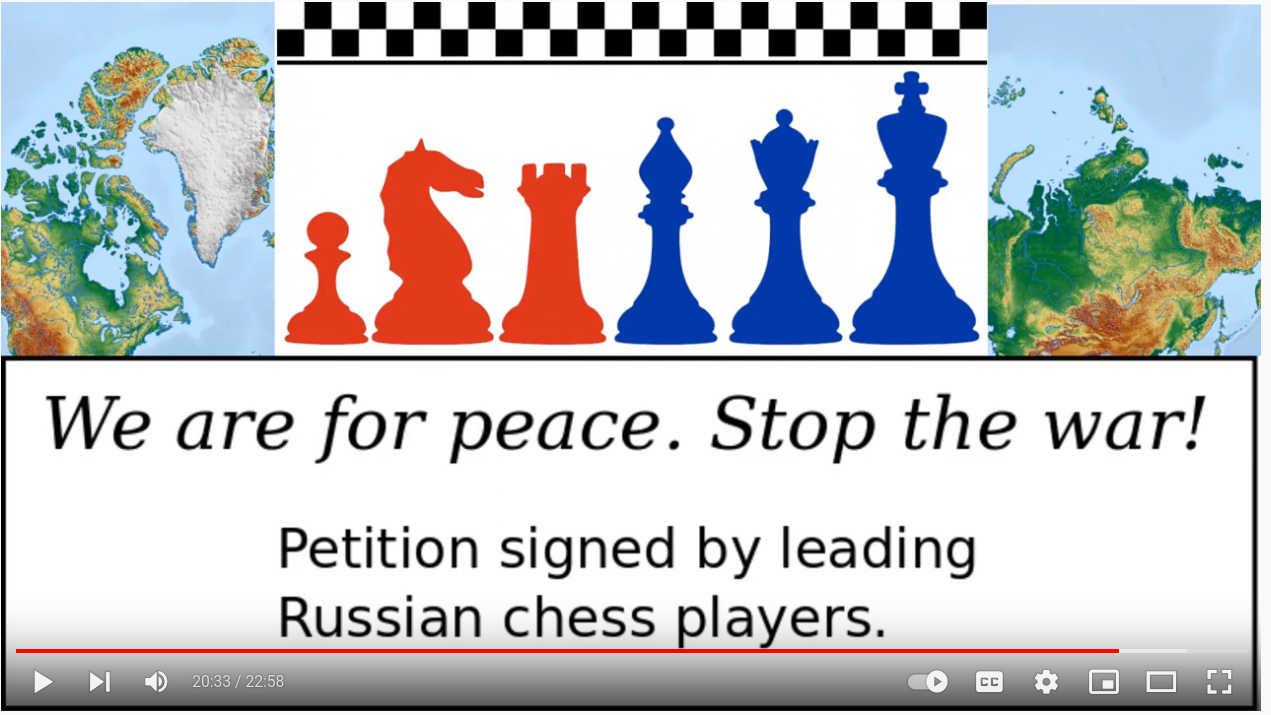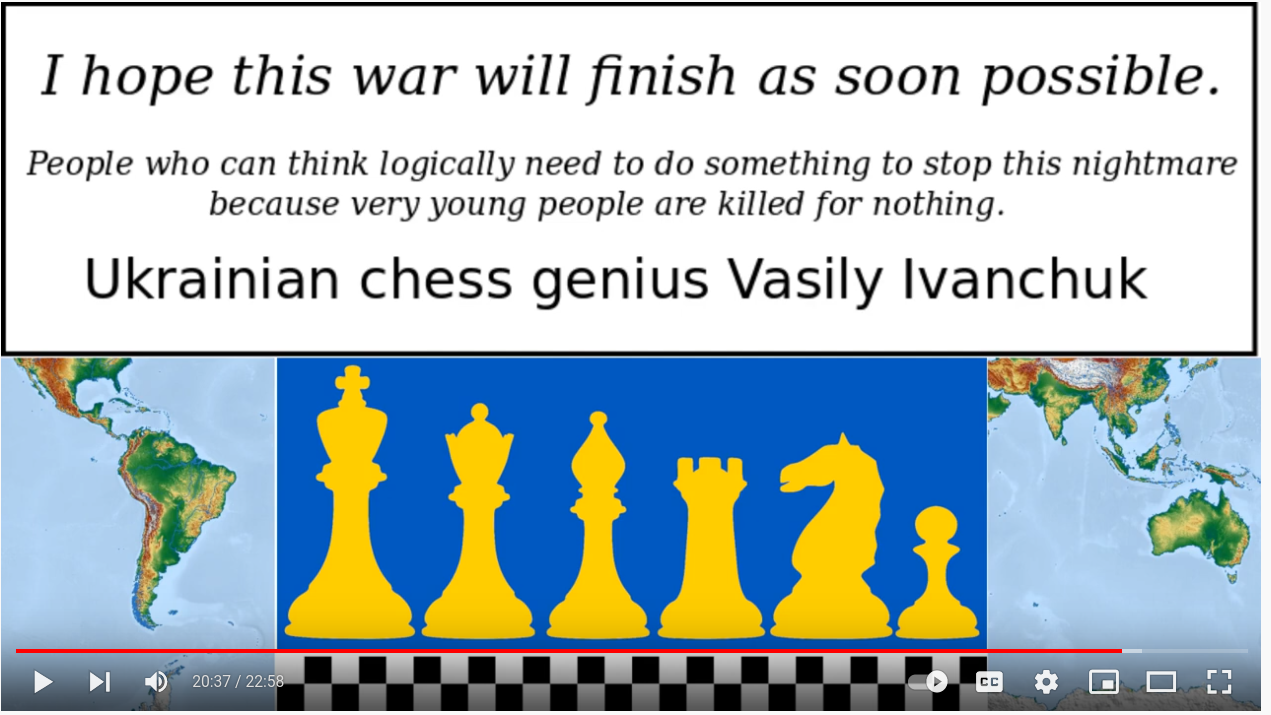Study Groups
Featured Investigations
- How do triangle centers manifest a language?
- Does Bott periodicity model divisions of everything?
- How do economists figure things out?
- How to express Active Inference in Wondrous Wisdom?
Featured Projects
Contact
- Andrius Kulikauskas
- m a t h 4 w i s d o m @
- g m a i l . c o m
- +370 607 27 665
- Eičiūnų km, Alytaus raj, Lithuania
Thank you, Participants!
Thank you, Veterans!
- Jon and Yoshimi Brett
- Dave Gray
- Francis Atta Howard
- Jinan KB
- Christer Nylander
Thank you, Commoners!
- Free software
- Open access content
- Expert social networks
- Patreon supporters
- Jere Northrop
- Daniel Friedman
- John Harland
- Bill Pahl
- Anonymous supporters!
- Support through Patreon!
2022.09.22 Bring Peace to Russia and Ukraine
How can we, as individuals, bring peace to Russia and Ukraine? What can we do now to prevent a world war? How can we prepare for peace just as we prepare for war? How can we think freely inside our mental bunkers?
This episode of Math 4 Wisdom is for people in Russia, in Ukraine, and in other countries who wish to take action for peace, and not simply peace, but good will, understanding, empathy, sympathy, friendship, solidarity, unity, love, wisdom.
Wisdom should teach us how to engage the violent, how to help us all fight peacefully for what we truly want. Mathematics should help us model violence and nonviolence, and clarify the choices that we can make.
In this video, first, I will sketch out the approach that I have developed as a peacemaker, which is to look at everything from our enemy's point of view. Second, I will present a strategy of outreach for responding to the violence in Ukraine, which is to organize a neutral forum for those who want peace and then reach out further to those who want war. Third, I will suggest twelve activities that we as peacemakers around the world could undertake together.
The Approach: Look at everything from our enemy's point of view
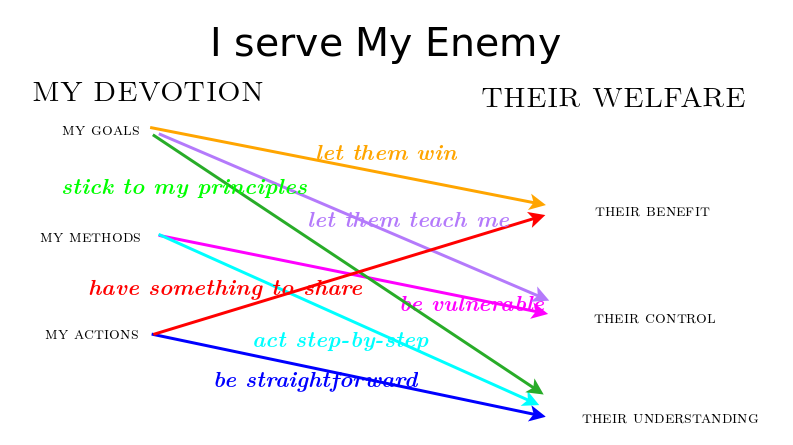
Almost thirty years ago, I lived in a neighborhood, Marquette Park, in Chicago, in the United States, where I learned how to engage the gang members who would stand on the street corners, how to walk up to them, respect them, influence them and not be so afraid of them. Jesus taught the main idea, that I should love my enemy. In practice, this means, "Look at everything from my enemy's point of view." Specifically, "Be straightforward; act step-by-step; be vulnerable; let them win; let them teach me; stick to my principles; have something to share".
It's crucial for me to let go of my own point of view. When a gang starts cursing me, if I take it personally, then they will zone in on my weakness and may promptly beat me up. But if instead I forget about myself, if I accept their anger and their insults and wonder out loud, "Why does an idiot like me want to talk to you?", if they sense that I am serving them and their interests, then they will take me seriously, and I can engage with them further. In future videos, I can share what I learned from hundreds of episodes, but for now I will just say that I gained a lot of practice. I got hit in the head four times in four years, but nothing worse.
I want to focus on a wonderful example where Ukraine President Volodymyr Zelenskyy took up his enemy's point of view. I am thinking of what United States President Donald Trump said was their perfect phone call, in which he asked President Zelenskyy to "do us a favor" and start an investigation of Hunter Biden, the son of President Trump's rival, the current President Joe Biden. President Zelenskyy wanted America to supply Ukraine with Javelin rockets but even so he managed to not give in to President Trump's pressure to do the wrong thing, which could have kept Joe Biden from getting elected, or could have damaged President Zelensky's relationship with President Biden. It is instructive how President Zelenskyy talked to President Trump in 2019: (See complete transcript.)
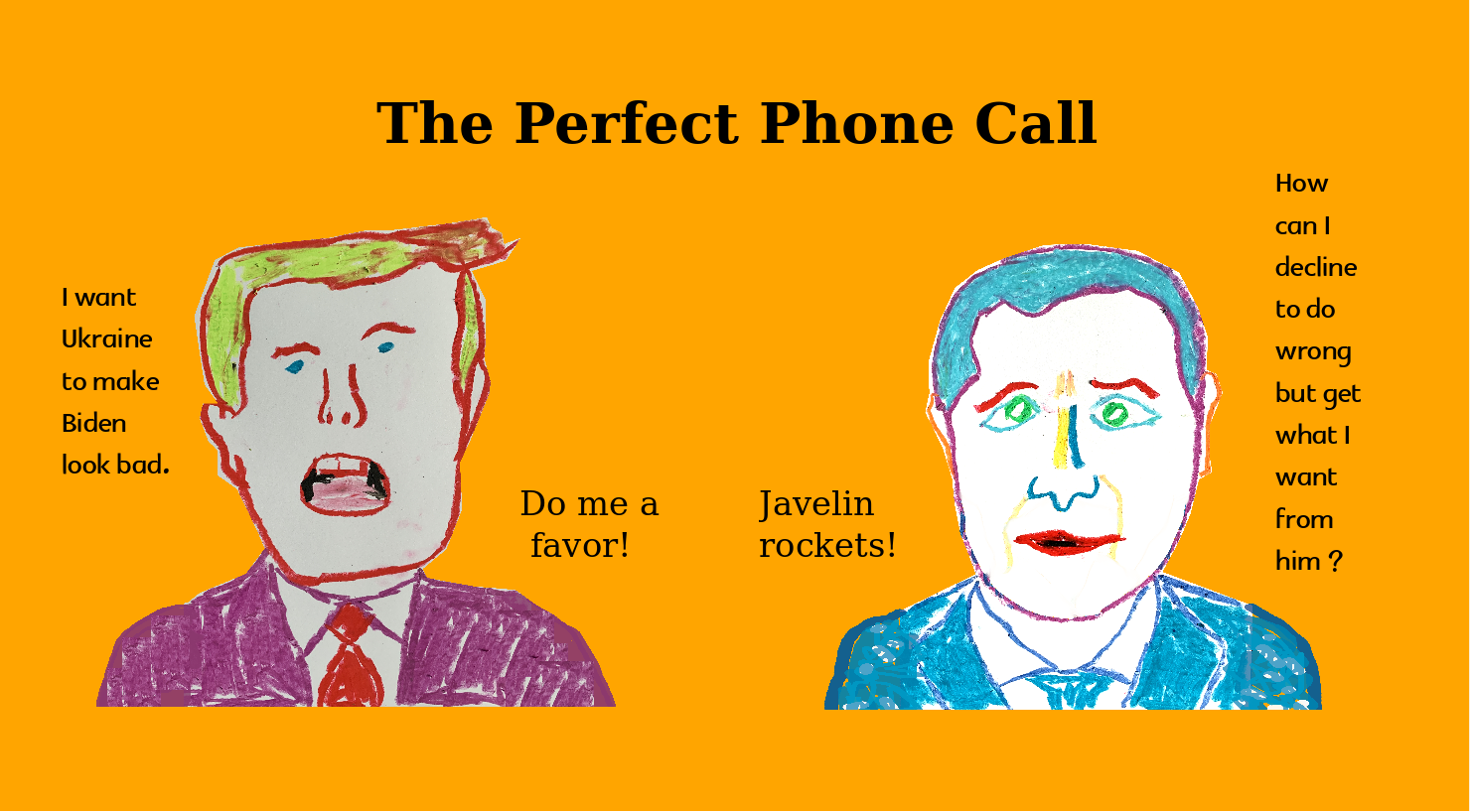
President Zelenskyy: I would like to confess to you that I had an opportunity to learn from you. We used quite a few of your skills and knowledge and were able to use it as an example for our elections and yes it is true that these were unique elections. We were in a unique situation that we were able to achieve a unique success. I’m able to tell you the following; the first time, you called me to congratulate me when I won my presidential election, and the second time you are now calling me when my party won the parliamentary election. I think I should run more often so you can call me more often and we can talk over the phone more often.
President Trump: [laughter] That’s a very good idea. I think your country is very happy about that.
President Zelenskyy: Well yes, to tell you the truth, we are trying to work hard because we wanted to drain the swamp here in our country. We brought in many many new people. Not the old politicians, not the typical politicians, because we want to have a new format and a new type of government. You are a great teacher for us and in that. ... Yes you are absolutely right. Not only 100%, but actually 1000%.
This is how I would want to talk to a violent gang or President Putin or President Zelenskyy or President Biden or President Trump. That is how President Zelenskyy saved his moral integrity, for which he sacrificed his personal integrity, his personality, what he would normally, personally want to say or do. His moral integrity is very different from and incomparably more valuable than his personal integrity. And that is why the leaders of Ukraine and the United States have a solid relationship of enormous consequence. We should all study and practice this type of nonviolent engagement so that we are good at loving our enemy. We should model it with mathematics and apply those models practically, as engineers of peacemaking.
The Strategy: Organize a Neutral Forum and Reach Out Further
We want to reach out to enemies on either side, hear them out, discover what they truly want, understand why that is what they want, and consider with them what flexibility there might be. Then we could explore all manner of solutions. Thinking creatively, they could achieve much more by fighting peacefully or not fighting at all. We could encourage them to think outside of the box. We could help them extricate themselves.
We don't have to speak with the leaderships. There are many ordinary people on both sides who are for the war, who believe from their point of view, that it is necessary, just and right, who want to vanquish their enemy.
If we could host sincere dialogue with such ordinary people, if we could listen to them, then surely we would hear a variety of views on either side. As things stand, even people in favor the war are understandably afraid to talk openly about their thinking.
As peacemakers, we should thus reach out to Russians and Ukrainians who represent a whole spectrum of positions. On either side, those who want to conclude the war could reach out to those who want to fight it. Reach out not by lecturing but by listening, again and again, until people become comfortable thinking out loud. If we hear out each other's grievances, however questionable they may be, we can let go of our conceptions of justice, which may not reflect what we actually want, and focus on what it takes for us to get along, and to have and show good will for each other, and support what we truly do want. Even a small group of ordinary people thinking out loud can work out solutions that could get to the heart of the conflict and resolve it.
I experienced this myself as one of ten Lithuanian and Litvak dissidents who campaigned to stop the Lithuanian government from renovating the Sports Palace, which the Soviets had built in the middle of the oldest Jewish cemetery in Vilnius. The Lithuanian government had the support of the official Lithuanian Jewish Community and thus ignored a petition by 50,000 Lithuanian Jews around the world who protested this desecration. Our group of ten Lithuanian and Litvak dissidents got to know each other's thinking on this matter over many months. We learned to craft arguments that a nationalist portal would publish, and that would persuade government leaders. We led three letter writing campaigns at crucial points in the budget process. Quietly, the Prime Minister struck the item from the budget, 27 million euros. Our small group achieved this not by applying pressure with greater force but by applying it more delicately, tuning into each other's perspectives, working out solutions, understanding and navigating the relevant processes. (See this article.)
The strategy that I propose is to reach out and bring together even a small group of Russians and Ukrainians and others around the world who would represent a variety of perspectives and would work to seek and offer solutions that could resolve the conflict. As more people got involved, and as solutions grew relevant, their impact would become tangible.
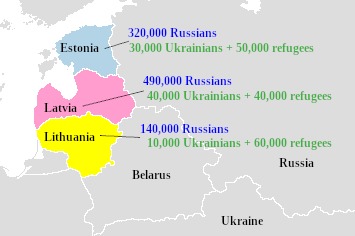
With this video, I hope to find you and others who would foster such dialogue through conversations and activities. We could try to do this online but also locally, for example, here in the Baltic states. Lithuania's port city of Klaipėda has many Russian speaking minorities and also many Ukrainian refugees. If we could have dialogue here, then we could also try in the cities in Latvia and Estonia which have many more Russian speakers. These are people who represent a wide variety of views. Some of the older ones still identify with the Soviet Union. Younger ones since 1991 were born in independent Baltic countries and since 2004 have lived in the European Union. Recently, many opponents of the Russian leadership have left Moscow and established themselves in Riga. We have the variety of views but it is a challenge to find people who would care or dare to speak their mind. Furthermore, in the Baltic countries, the people who work with minority communties are typically government officials or employees who would not want to show sympathy to anybody who takes the side of the Russian Federation.
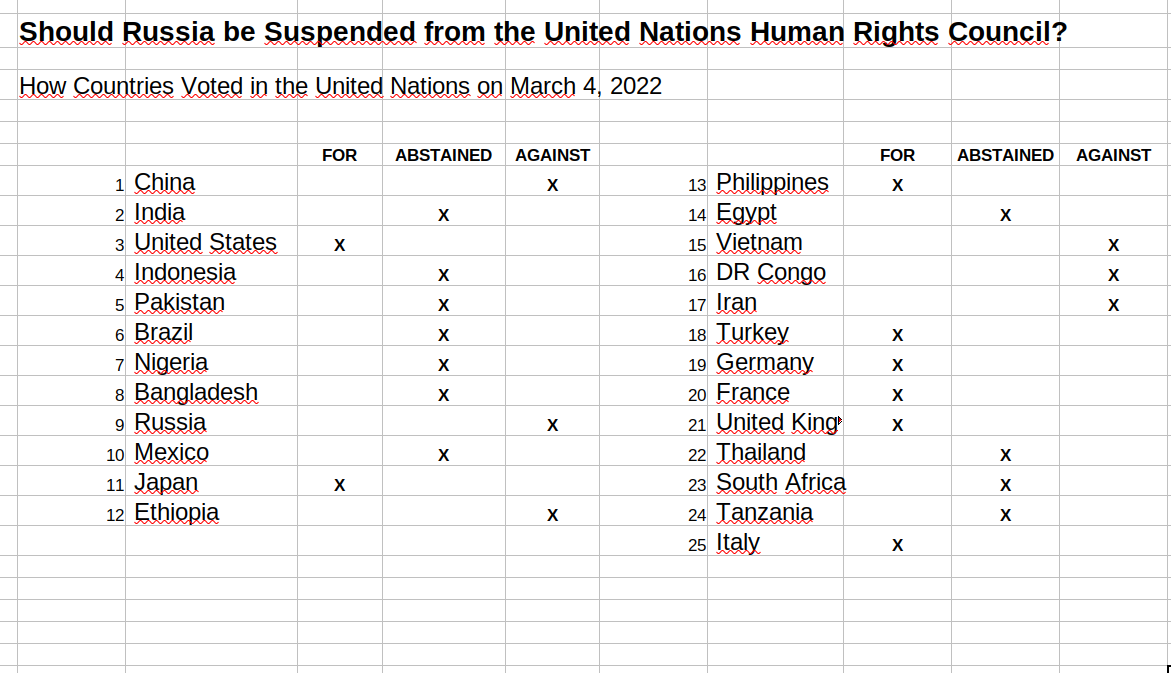
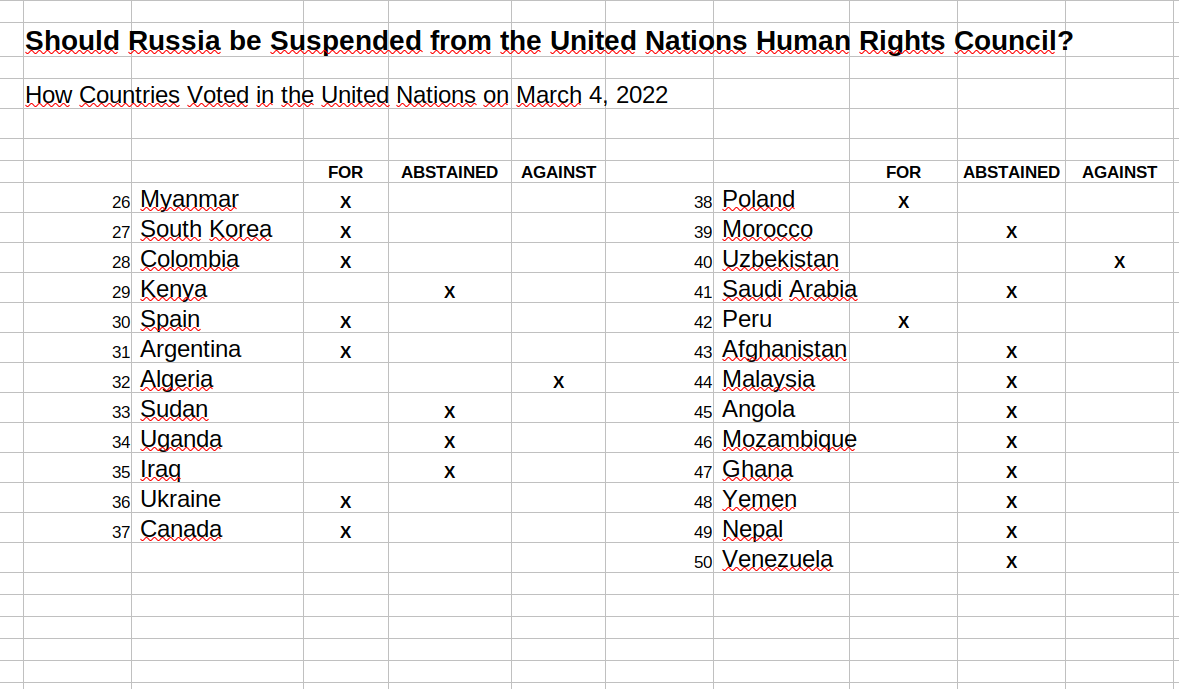
We very much need peacemakers who live in countries that are not actively supporting one side or another, but can hear out both sides, such as perhaps Serbia or Turkey or India or Mexico. Every peacemaker around the world who supports dialogue can truly make a difference.
There is no substitute for such dialogue. An honest dialogue will reveal the many family bonds that remain between Russians and Ukrainians, the many acts of good will that could heal relations, the many wrongs that must be addressed, the many sensitivities that could be shown, and the many solutions that could make sense.
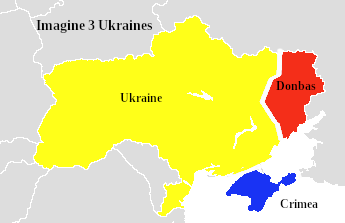
Just to spark the imagination, and put all options on the table, what if Crimea was established as an independent state where the president was chosen by the Tartar community? And if Russia and Ukraine could consent to that, then perhaps the Donbas could likewise be an independent, nonaligned, demilitarized state, a protectorate of the United Nations, perhaps holding a referendum in fifty years to decide whether it wanted to stay independent or join Ukraine or Russia. What if Russia and the West joined efforts to rebuild Ukraine and Donbas, including new projects for space exploration, for environmentally friendly industry, for clean energy, for medicine, sports, arts, culture. Why shouldn't Ukraine be part of NATO, with agreements to keep its border regions demilitarized?
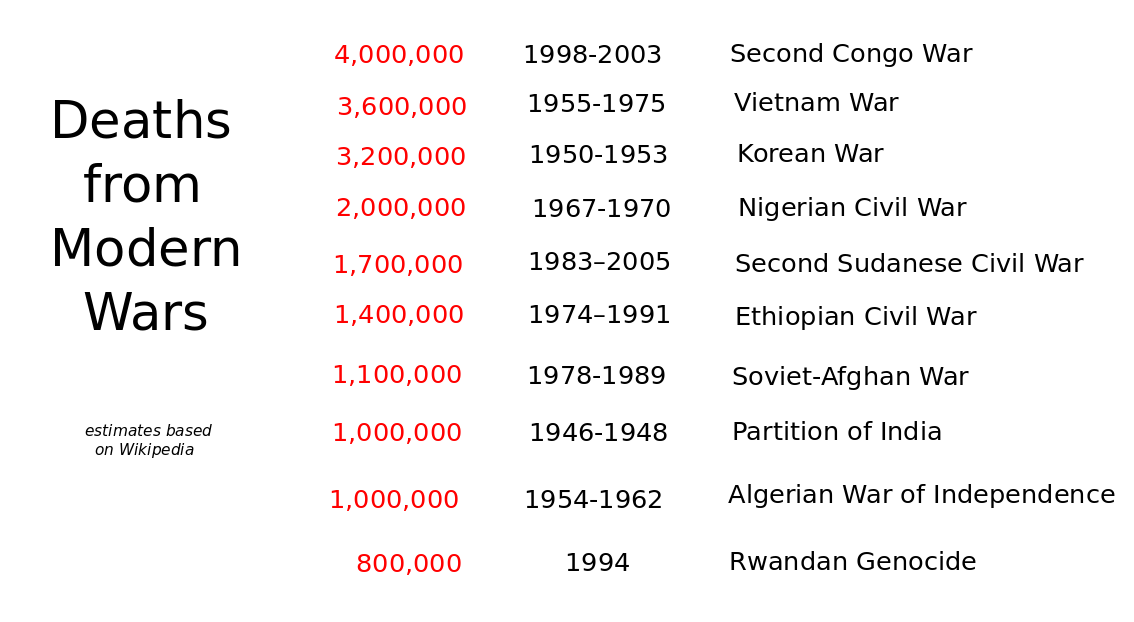
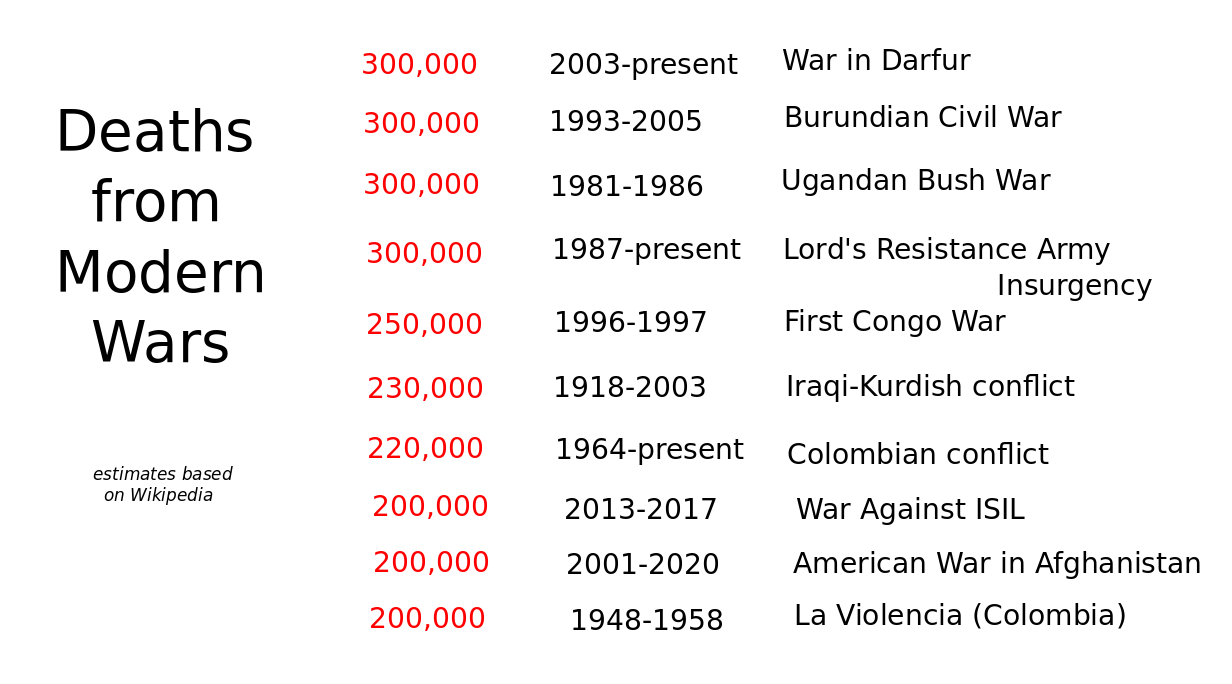
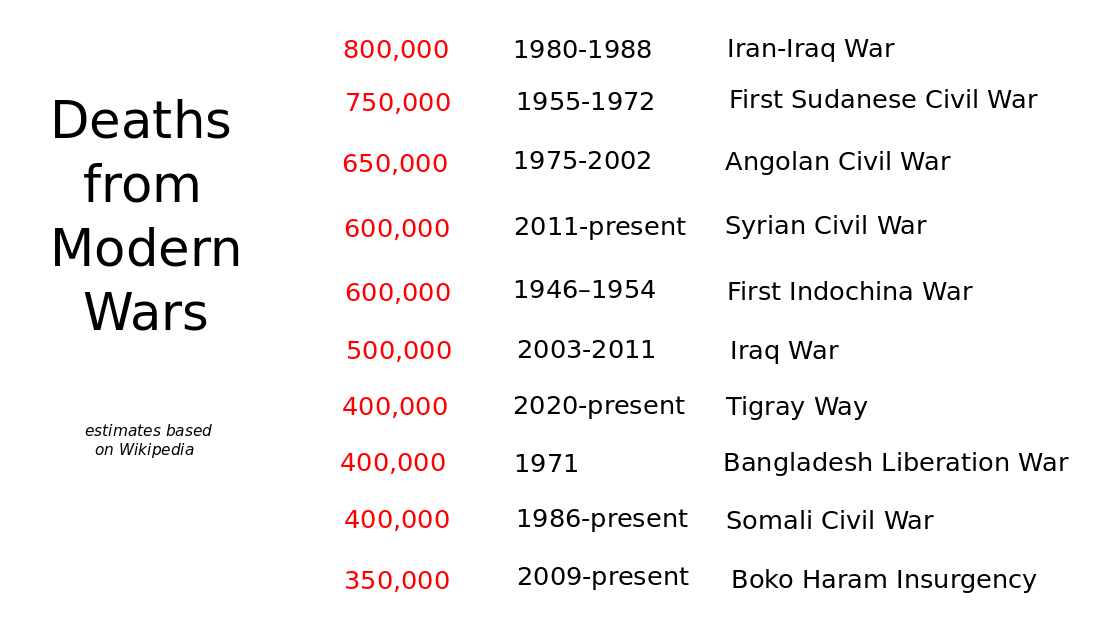
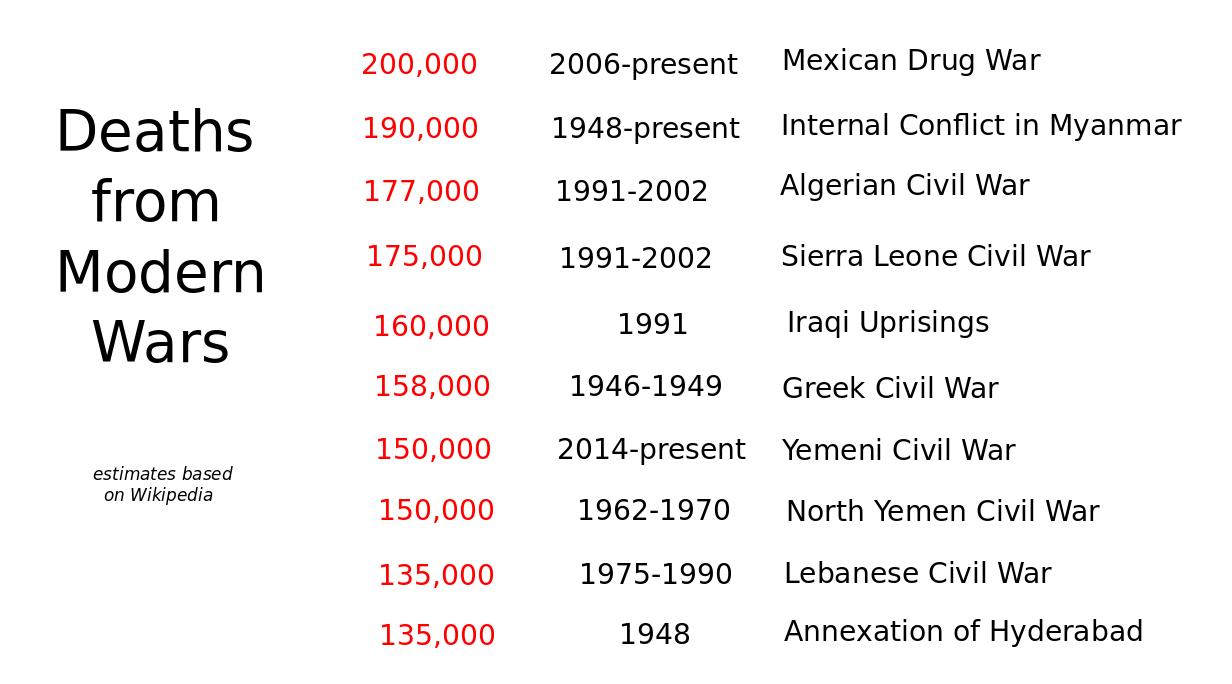
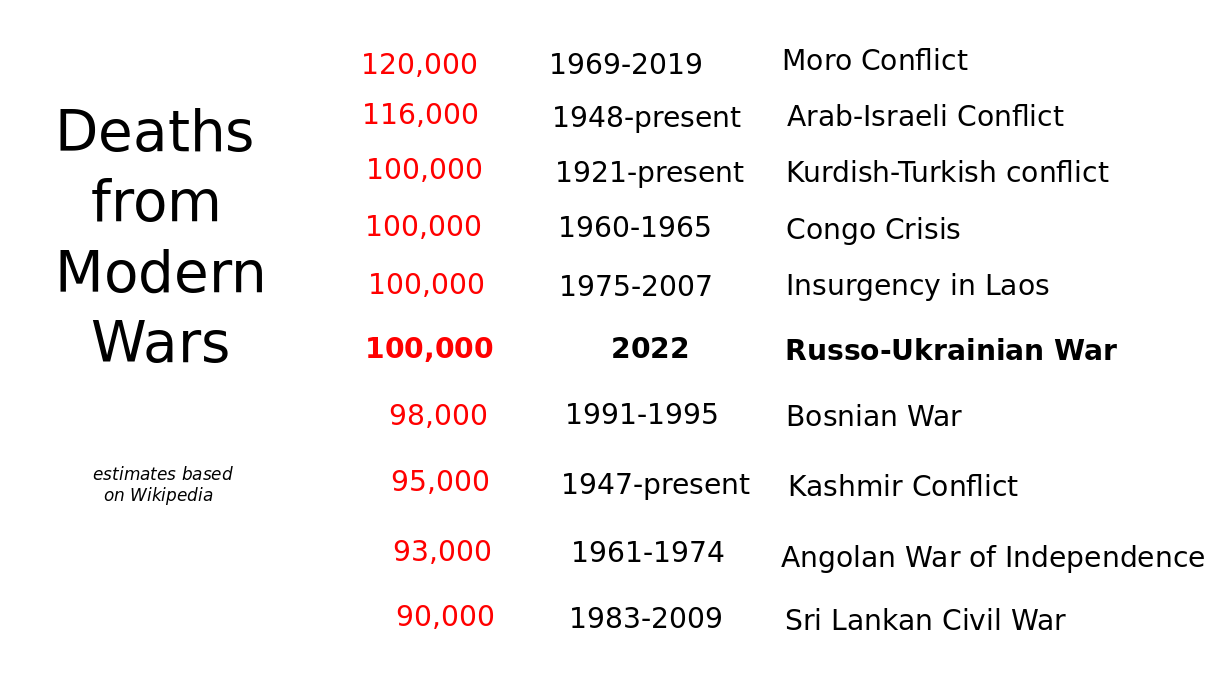
Why can't there be a global review of all of the war crimes in the world since the founding of the United Nations, to put them all in perspective, and study their causes, and judge them comprehensively, comparatively, nonselectively and impartially, considering them chronologically, including those made by the Soviet Union and the United States and the United Kingdom and France and the People's Republic of China and Russia and Ukraine and other countries in wars around the world? Once we have good will, there are so many ways that we can embrace our shared humanity. You and I and every peacemaker can help by contributing our good will.
The Activities: 12 Ways to Come Together, Foster Peace and Reach Out Further
Please contact me if you would like to work together to foster peace in Ukraine and Russia. My email is at my website www.mathforwisdom.com I am curious what activities you would find meaningful. Here are some activities by which I suggest we could get to know each other, show humanity for the sake of peace, and reach out to others.
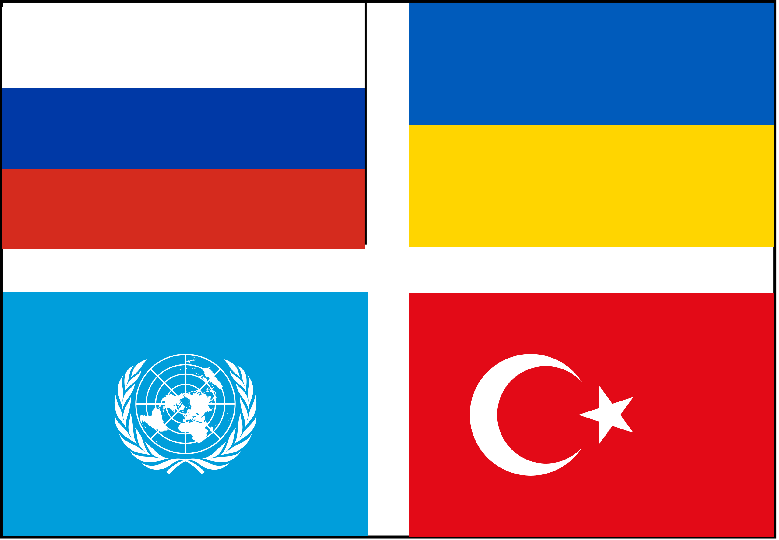
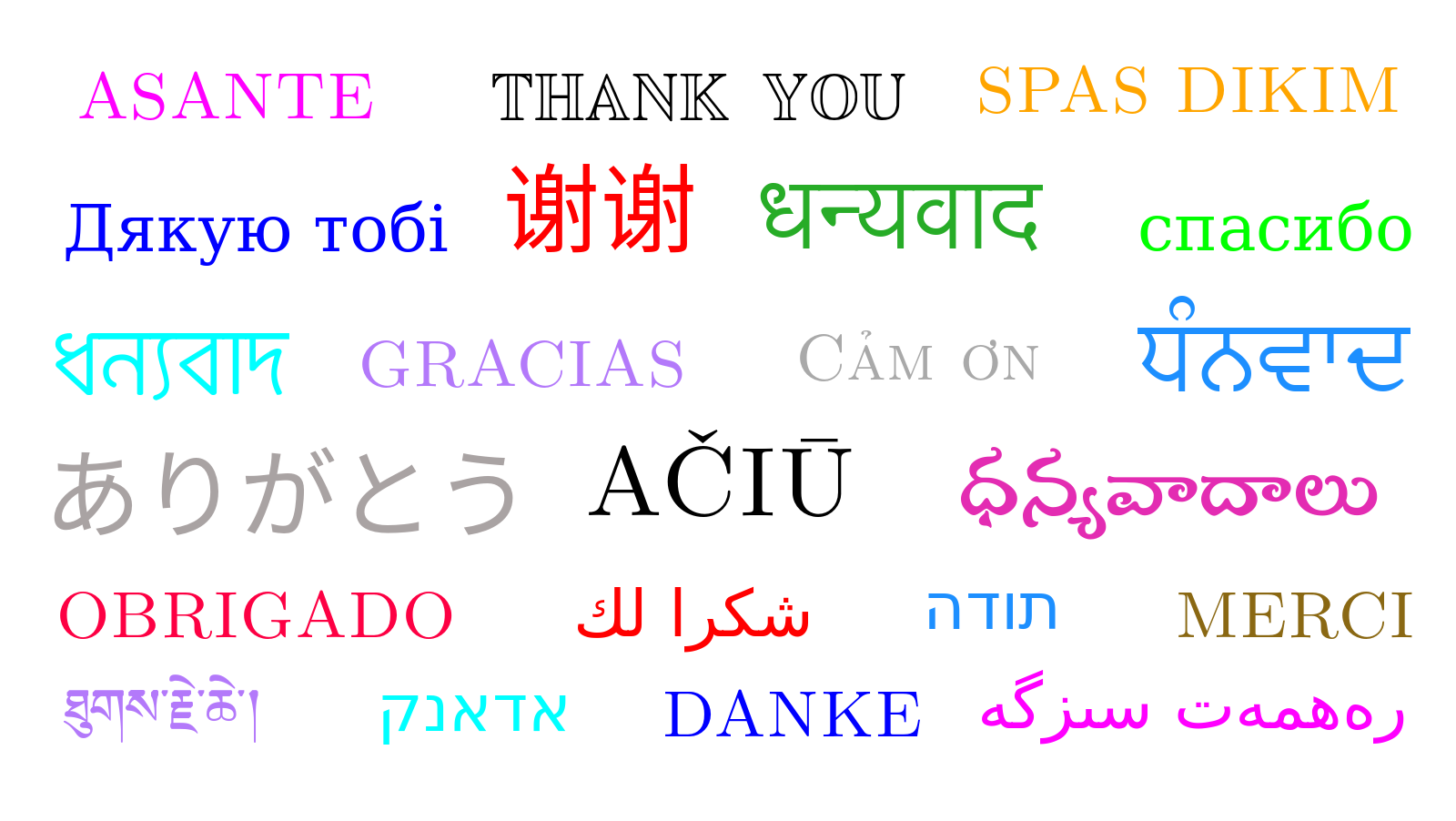
1) We could create an online petition to thank Russia, Ukraine, Turkey, the United Nations and their leaders for making possible the shipment of grain from Ukraine. We could translate the text into the languages of the nations that suffer food insecurity.
2) We could create an online petition for citizens of the European Union to welcome Ukraine as a future member of the European Union but also to insist that Ukraine show sensitivity to minorities, acknowledge the suffering caused during World War II by the  Organization of Ukrainian Nationalists, take down memorials to its leaders, such as Stepan Bandera, and denounce or forbid the display of its red and black flag, as not compatible with the values of the European Union.
Organization of Ukrainian Nationalists, take down memorials to its leaders, such as Stepan Bandera, and denounce or forbid the display of its red and black flag, as not compatible with the values of the European Union.
3) We could explore ways to show respect not for the Soviet Union but for the individual Soviet soldiers, including Russians and Ukrainians, who fought against Nazi Germany in World War II. We could do this throughout Eastern Europe, and in particular, we could care for the heritage of Jewish partisans, who fought Nazi Germany, and should not be branded as Soviet collaborators.
4) We could learn how to pray together for peace in ways that would foster unity amongst people of different faiths, would help us appreciate our shared humanity, and would help us consider God's point of view on this crisis.
5) We could engage and support peaceful groups that show solidarity with Ukrainians or with Russians, ask them not to use dehumanizing language or images, and suggest ways of showing solidarity with all people of good will.
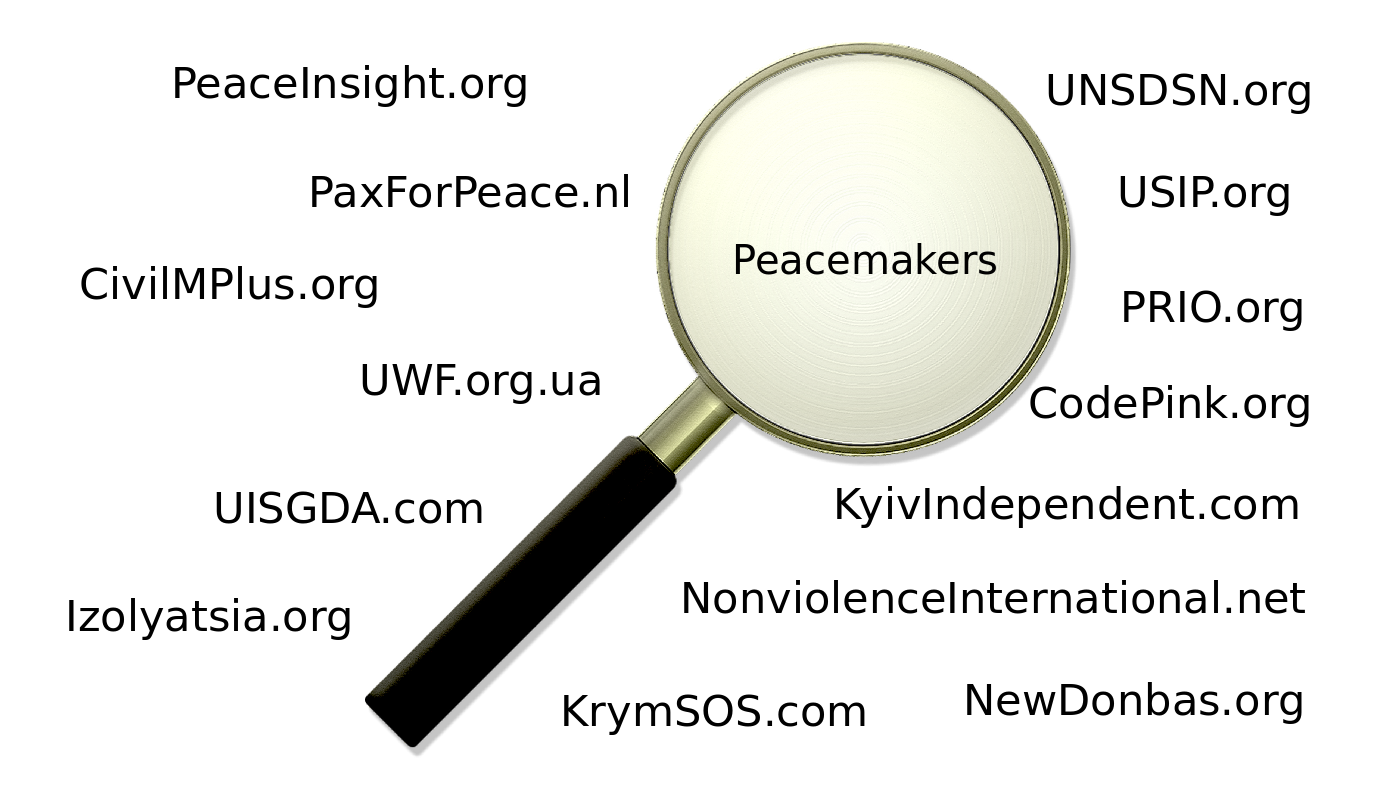
6) We could look for individuals and groups that would like to work together for the sake of peace. We could learn from them and join them.
7) We could investigate, who in the world wants this war and why? Who in Russia, who in Ukraine, who in the West and other countries? And who wants peace?
8) We could reach out to Russians and Ukrainians around the world, as I discussed earlier.
9) We could encourage solidarity through, for example, online chess tournaments. Russians and Ukrainians are highly respected and have many friends in the chess world. (See articles about the petition and Grandmaster Vasyl Ivanchuk's comments on the war.)
10) As regards Math 4 Wisdom, we could engage mathematicians, philosophers and peacemakers in various countries around the world, especially nonaligned countries, and ask for them to share their thoughts and encourage dialogue. (See: Open letter of Russian mathematicians against the war in Ukraine.)
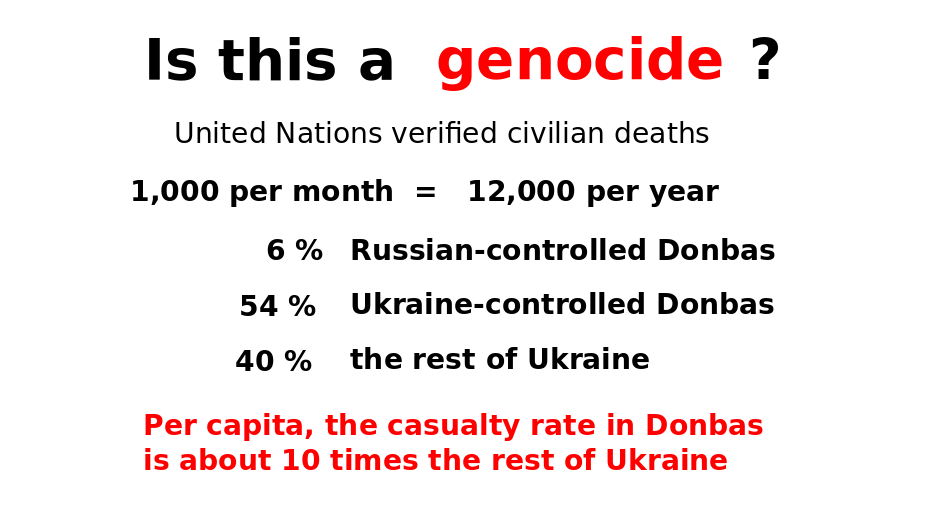
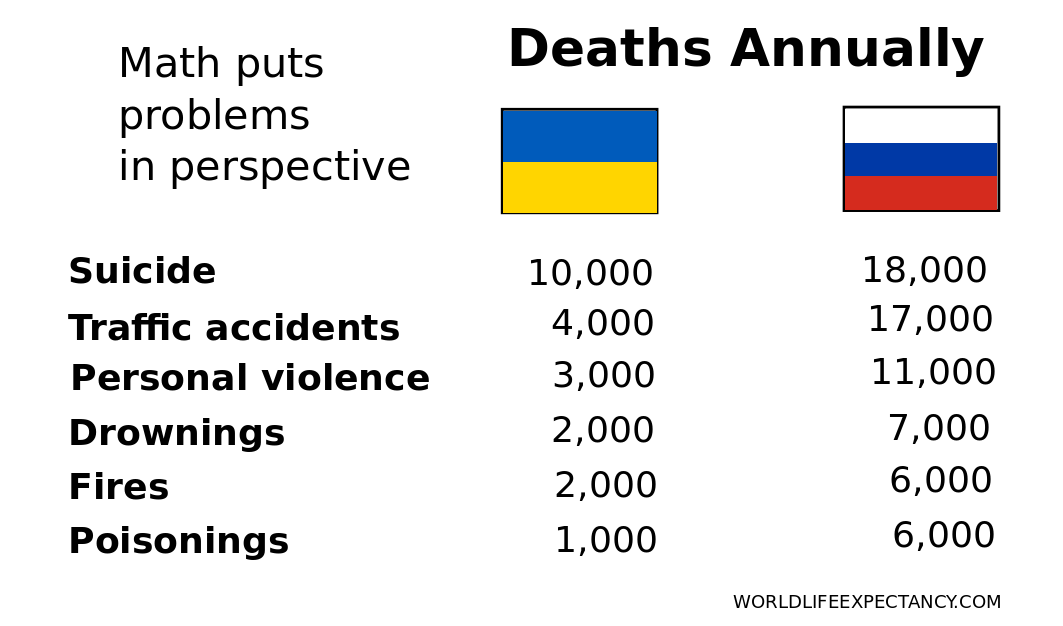
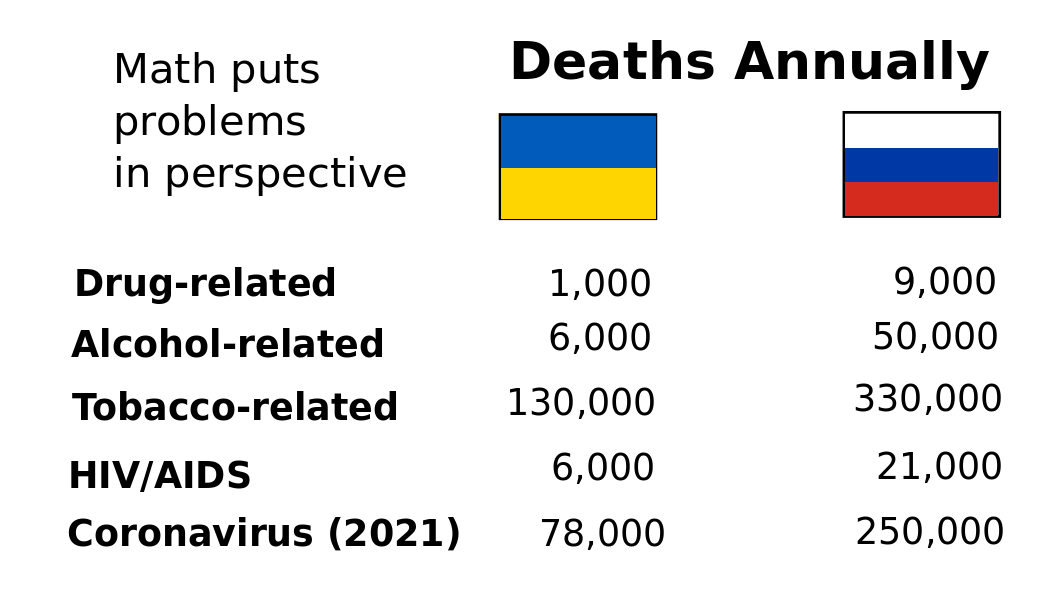
11) We could use mathematics to develop and apply models of violence, nonviolence, dialogue and peacemaking. For example, game theory is very relevant. (See, for example, L S Liebovitch et al. Complexity analysis of sustainable peace: mathematical models and data science measurements.)
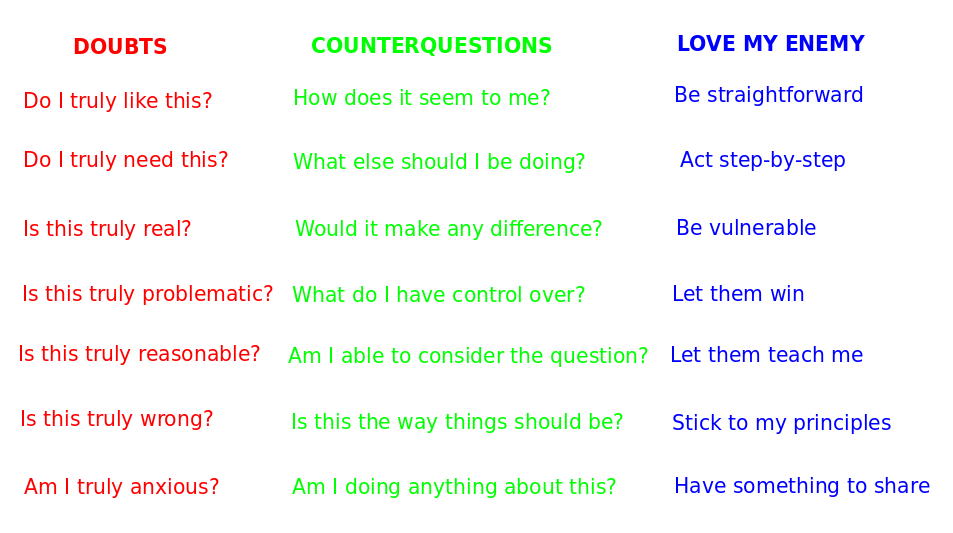
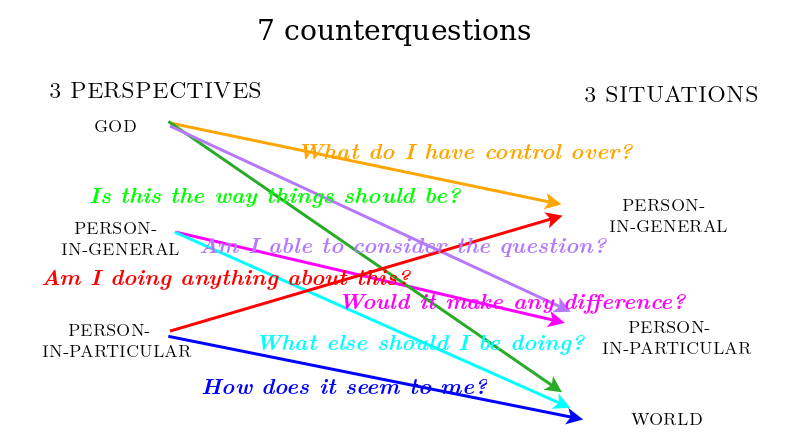

12) I myself look forward to making videos about what I have learned in my own adventures as a peacemaker. I will explain how the seven principles of nonviolence which I listed at the start of this video are organized by seven counterquestions to doubts. These counterquestions are ways of letting go of our presumptions, which is to say, ways of debrainwashing ourselves. I will talk about them as a framework for intelligence. Curiously, and perhaps superficially, this framework has the form of (a subgraph of) the utility graph {$K_{3,3}$}, which arises in the  three utilities problem, and also in
three utilities problem, and also in  Kuratowski's theorem on planar graphs. The purpose of Math 4 Wisdom is to model the language of wisdom with the language of mathematics, and apply that usefully, as in empowering individuals to bring peace to Russia and Ukraine.
Kuratowski's theorem on planar graphs. The purpose of Math 4 Wisdom is to model the language of wisdom with the language of mathematics, and apply that usefully, as in empowering individuals to bring peace to Russia and Ukraine.
I welcome your comments below. Please contact me by the email address m a t h 4 w i s d o m @ g m a i l . c o m which you will find at math4wisdom.com
I conclude with my prayer of sadness for the thousands of victims, the dead and injured, civilians in Ukraine and in Donbass, and soldiers, both Russian and Ukrainian, and for the millions of displaced and traumatized people. I pray for love for their families and friends and neighbors. I pray for peace.



